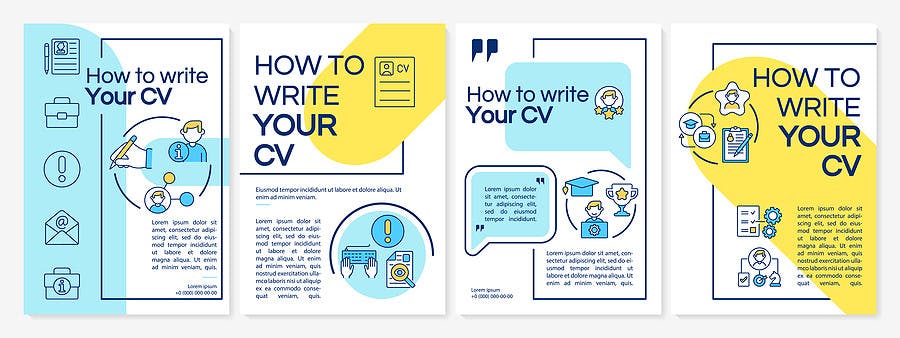Do you remember writing your first resume? I do. I worked with the college career center to create my document. This is when we still had library classes and I don’t remember templates being a thing. I do remember that using good paper was a big deal, which is kind of funny now in this digital world where most of us never see a paper resume. But that’s not my point.
My point is that I mostly remember feeling helpless. I grew up in a family where everyone was a teacher or in the military. They weren’t exactly resume writers and surely didn’t know what corporate America was looking for. They knew how to go up the ranks and get a pension. But that wasn’t for me.
Every time I would look for a new job, I went back to this document. I would add to it, edit a little, and try to make myself look good, but really I was operating off of things I found on the internet. I didn’t know how to explain my skills to anyone else — I was just told I was good at a few things and I assumed those people knew what I was good at better than I did. They actually had a job and I was still applying, after all.
The Guessing Game & Your LinkedIn Profile
If we struggle to write a resume, how are we supposed to write a LinkedIn profile?
Writing a LinkedIn profile usually doesn’t go any more smoothly than the resume-writing guessing game, even for recruiters. It’s kind of funny: You look at LinkedIn profiles all day, and somehow, you have no clue what to do with your own.
Most of the time, recruiters do the same thing I did with my resume: copy and paste something from somewhere else — something I thought I was supposed to be saying on my resume, skills other people told me I was good at.
We regurgitate the information we see time and time again, because we think that’s what makes up a good resume. What makes up a good LinkedIn profile. What makes up a good candidate, and how we should tell our stories as both candidates and recruiters.
But explaining your skills to get a job shouldn’t be some guessing game. That’s not right. This is not the lottery or some Vegas card game. This is someone’s life and how they spend a very large portion of their day every single week. We shouldn’t be starting on the basis of Googling and stealing other people’s templates — guessing what we’re good at and how to write our own stories. Boiling our lives down to someone else’s words just isn’t going to sell ourselves accurately or genuinely.
Translating Stories Into LinkedIn Content
If you want to know what you’re good at, try having a conversation with a former manager, a professor, your parents, or someone who you have worked with on something from beginning to end. Ask them to tell you one word that describes your work style. When they give you the word, say, “I love that. Can you tell me about a time when I worked like that when most people wouldn’t?”
When you start to hear the examples of where you shine, there are usually trends. Commonalities among every scenario. That’s what you’re good at.
I love the idea of a team doing this, having these conversations with each other as a workshop. Not only will your team get to know each other better, but they will get to know themselves better. Together, your team can grow, building relationships and gaining confidence in themselves.
These conversations can then be translated into everyone rewriting their LinkedIn headlines and summaries. Instead of your team finding examples of good headlines and summaries from the internet, they can work together to really write something that they’re proud of. Something that they know they’re good at, because they’ve got the proof sitting right next to them as their co-workers and managers.
When we aren’t sure how to tell our own stories and highlight our own skills, we can’t turn to Google to help us out. Google doesn’t know us, and templates that other people have used are never going to allow you to tell your story. But your friends, family, and co-workers? Those are the folks who see what you do best.
And when your LinkedIn content actually tells the story of who you are and what you’re good at? That’s when you can really start to shine.
